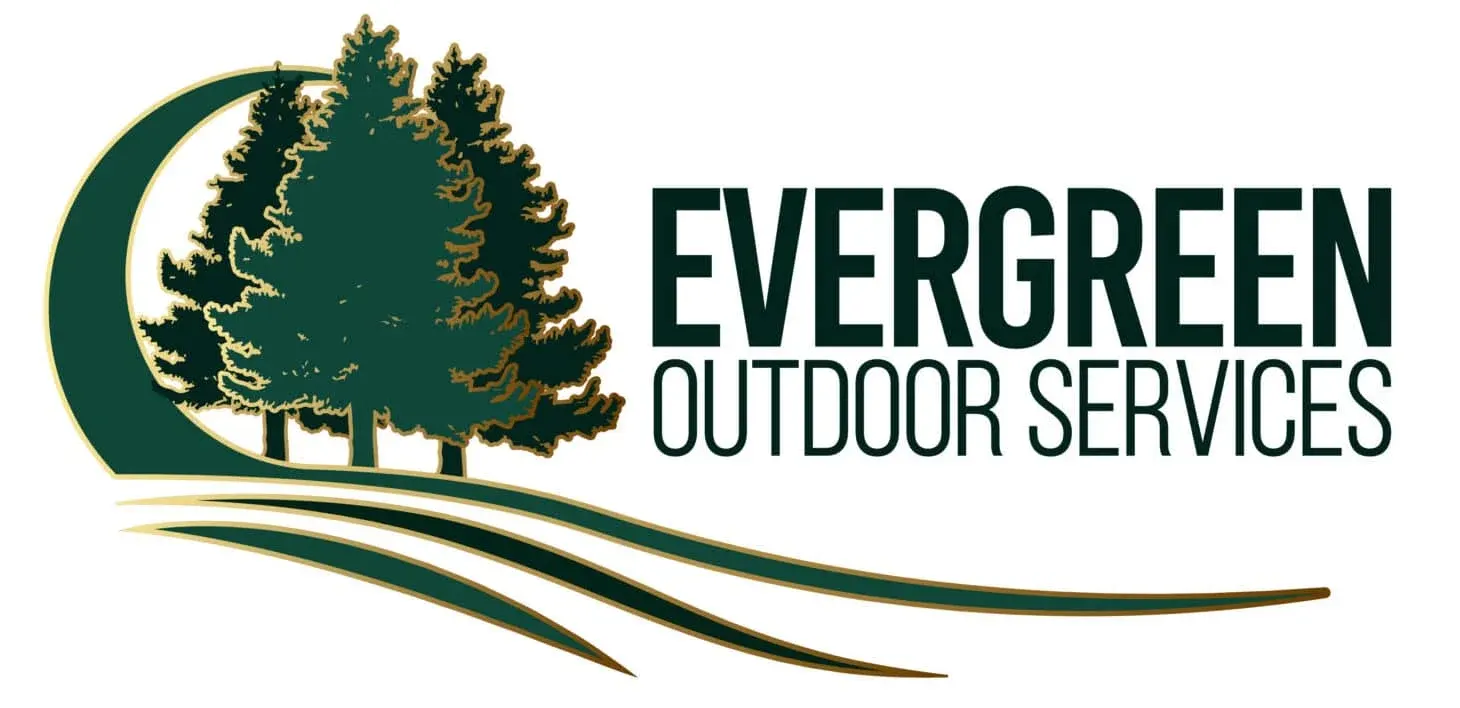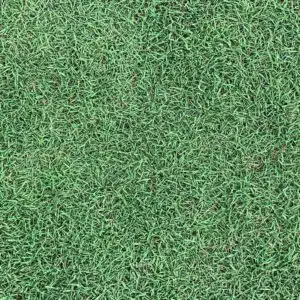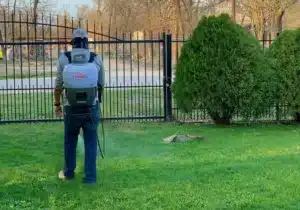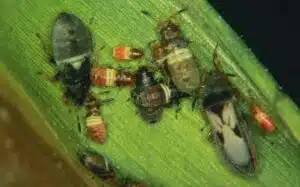Bermuda Grass Lawn Care is a top choice for sunny Houston lawns thanks to its heat tolerance, durability, and ability to form a dense, vibrant turf. This tough grass handles kids, pets, and long Texas summers with ease. If your yard gets plenty of direct sunlight and you want a lawn that recovers quickly from foot traffic, Bermuda grass could be the perfect fit.
But despite its reputation, Bermuda grass isn’t truly low-maintenance. While it’s durable, it does require consistent care. In this guide, we’ll walk you through how to care for Bermuda grass, what to expect, and how to keep it looking sharp year-round in Houston’s unique climate.
 Why Bermuda Grass Works So Well in Houston
Why Bermuda Grass Works So Well in Houston
Bermuda grass naturally thrives in our region for a few key reasons:
-
It handles high heat and drought well, especially during peak summer
-
It grows aggressively, which means it fills in quickly after damage
-
It forms a dense canopy, helping prevent weed growth
-
It performs best in full sun, needing at least 6–8 hours daily
It’s a great option for high-traffic areas and homeowners looking for a thick, athletic-looking lawn. However, it’s important to note: Bermuda struggles in shade, so it’s not ideal for lawns with large trees or heavy coverage from structures.
Bermuda Grass Lawn Care | Is Bermuda Grass Low Maintenance?
Bermuda grass often gets labeled as low-maintenance, but that depends on your definition. Compared to cool-season grasses or shade-tolerant varieties, Bermuda is easier in some areas—but more demanding in others.
What makes it easier:
-
Requires less water than St. Augustine
-
Recovers quickly from damage or wear
-
Naturally resists some pests and diseases
-
Outcompetes weeds when maintained properly
What requires more effort:
-
Needs to be mowed frequently (every 4–7 days in summer)
-
Requires consistent fertilizing throughout the growing season
-
Doesn’t perform well in shade
-
Can develop thatch buildup that needs annual maintenance
Think of Bermuda grass as a high-performance turf. When you keep up with its care, it delivers excellent results—but it doesn’t thrive on neglect.
Mowing – The Foundation of Bermuda Lawn Health
Bermuda grows fast and needs regular mowing to stay dense and healthy. During the growing season, plan to mow once a week—or even twice if it’s thriving.
-
Keep mowing height between 1.5 to 2.5 inches
-
Use sharp mower blades to avoid tearing the grass
-
Follow the one-third rule: never remove more than one-third of the blade height at once
Frequent mowing helps thicken the grass, which naturally reduces weeds and keeps the lawn looking well-groomed.
Watering Tips for Houston Conditions
While Bermuda is drought-tolerant, it still needs consistent watering—especially during dry spells. Deep, infrequent watering is best.
-
Water once or twice a week, giving about one inch total
-
Early morning watering (before 9 AM) is ideal to reduce evaporation
-
Watch for stress signs like folded blades or a bluish-gray tint
Avoid shallow watering, which weakens roots and encourages disease. Strong roots mean a stronger, more drought-resistant lawn.
Fertilizing for Color and Growth
Bermuda grass is a heavy feeder. Without proper nutrients, it quickly loses color and density.
-
Use a nitrogen-rich, slow-release fertilizer made for warm-season grasses
-
Apply every 4–6 weeks from late spring through early fall
-
Consider spoon-feeding (smaller, more frequent applications) for even color and stronger roots
Over-fertilizing can lead to thatch buildup, while under-fertilizing causes thin and pale patches. Keep it balanced and consistent.
Weed Control That Works
The best weed control starts with a thick, healthy lawn. When properly maintained, Bermuda grass can outcompete most weeds. Still, a little extra help goes a long way.
-
Apply pre-emergent herbicides in early spring and fall to stop weeds before they grow
-
Use Bermuda-safe post-emergents for spot treatment
-
Maintain thick turf through regular mowing and fertilization
A strong Bermuda lawn naturally defends itself—but ignoring weed control in the off-season can set you back months.
Common Pests and Diseases in Bermuda Grass and other Warm Season Grass Types
Though Bermuda grass is known for its resilience, it’s not immune to pest and disease problems—especially during the warm, humid months we often experience here in Houston. Staying ahead of these issues with regular monitoring is key to keeping your lawn healthy and minimizing long-term damage.
Be on the lookout for:
Chinch Bugs: These tiny insects feed by sucking the sap from grass blades, injecting a toxin that causes the grass to yellow and die. Infestations usually start in sunny, dry areas and can spread quickly if untreated. Look for yellowing patches that don’t improve with watering.
Armyworms: These caterpillars chew through grass blades rapidly, often leaving large, brown patches overnight. They tend to appear in late summer and early fall and are especially active after rain or irrigation.
Grub Worms: The larval stage of beetles, grubs live underground and feed on the roots of grass, causing the turf to wilt, thin out, or pull up easily like a carpet. Birds or animals digging in your lawn can also signal grub activity.
Fungal Diseases: Bermuda grass is susceptible to fungal infections like dollar spot, brown patch, and leaf spot, especially when lawns are overwatered, mowed too short, or when humidity is high. Signs include discolored rings or patches, a slimy or greasy texture, or grass that appears water-soaked.
Proactive Prevention and Action
Inspect your lawn regularly during the growing season—at least once a week in summer. Catching early signs like odd coloring, thinning, or visible pests can make a major difference in how easy and affordable the treatment will be. If a problem spreads unchecked, the damage can become widespread, and recovery time will increase.
At the first sign of trouble:
-
Adjust your mowing and watering routine if necessary.
-
Apply targeted, Bermuda-safe treatments (natural or chemical) depending on the issue.
-
Don’t hesitate to call a lawn care professional if the problem is widespread or hard to identify.
A healthy, well-maintained Bermuda lawn is naturally more resistant to pests and disease. But even the best lawns need a little backup sometimes—and early intervention is always the best approach.
Bermuda Grass Lawn Care (Advanced Tips)| Aeration, Dethatching, and Topdressing
These extra steps aren’t required often but can significantly improve the health and appearance of your Bermuda lawn.
-
Aerate once a year in spring to reduce compaction and help roots grow deeper
-
Dethatch if thatch exceeds ½ inch, especially if your lawn feels spongy
-
Topdress with compost or a soil mix after aeration to improve soil structure and level low spots
These practices promote stronger roots, better drainage, and a smoother, healthier lawn overall.
Mistakes to Avoid with Bermuda Grass
A few common missteps can make Bermuda harder to manage than it needs to be:
-
Mowing too short, which leads to weak growth and more weeds. Follow the 1/3 mowing rule!
-
Overwatering, which creates shallow roots and increases disease risk
-
Using the wrong fertilizer, especially fast-release types that burn the grass
-
Neglecting sunlight needs—even great care won’t help Bermuda in the shade
If you’re seeing recurring problems, it may come down to one of these issues. Correct them early for best results.
Final Thoughts on Bermuda Grass Lawn Care
Bermuda grass is a strong, fast-growing turf that thrives in Houston’s sunny, hot climate. It’s not a “set it and forget it” lawn, but with a consistent care routine, it can outperform nearly every other grass type in durability and appearance.
Stick with the basics—mow regularly, water deeply, fertilize on schedule—and your lawn will reward you with rich color, strong roots, and season-long growth.
Need Professional Help?
At Evergreen Outdoor Services, we know Houston lawns inside and out. Whether you’re dealing with patchy growth, weed invasions, or just want a clean, professional look without the hassle, our team is here to help.
Contact us today to schedule a free lawn evaluation and find out how we can help your Bermuda lawn reach its full potential.

 Why Bermuda Grass Works So Well in Houston
Why Bermuda Grass Works So Well in Houston




